
未读小经典·思想家01
¥99.99
柏拉图(Plato)古希腊哲学家、西方哲学的代名词,“苏格拉底式”对话的开创者。他的《对话集》让老师苏格拉底的思想得以流传后世,影响了斯多葛学派等哲学流派。 马可·奥勒留(Marcus Aurelius)既是古罗马帝国皇帝,又是晚期斯多葛学派的代表哲学家。他在政务辛劳之余,与自己内心对话,写下了《沉思录》这部“世界之书”。 蒙田(Michel de Montaigne)法国思想家、散文家,他出身贵族,博览群书,尤其喜爱斯多葛派哲学。他隐居十年,创作不朽的《随笔集》,被誉为“欧洲随笔之父”, 启发了叔本华等后世学者。 叔本华(Arthur Schopenhauer)德国哲学家,开创了非理性主义哲学,创立了唯意志论哲学,毕生致力于思考人类的孤独与幸福,其思想深刻影响了尼采、萨特等人。 尼采(Friedrich Nietzsche)西方现代哲学开创者,一位不融于时代的天才哲人。他是唯意志论哲学的继承者,并承上启下,开存在主义之先河。他曾宣布“上帝已死”,主张重估一切价值。


中国传统道德·普及本(重排本)
¥22.80
罗国杰,男,1928年1月生,河南内乡人。现为中国人民大学哲学系教授,博士生导师,中国伦理学名誉会长,曾任国务院学位委员会第二届哲学学科评议级成员,第三、四届哲学学科评议组召集人,中国人民大学副校长等职。主要研究方向为伦理学原理、中国传统伦理、思想品德教育。主要著作有《罗国杰文集》、《以德治国与公民道德建设》、《道德教育与价值导向》、《伦理学》(主编)等。在《人民日报》、《光明日报》、《哲学研究》等报刊杂志上发表论文300多篇。

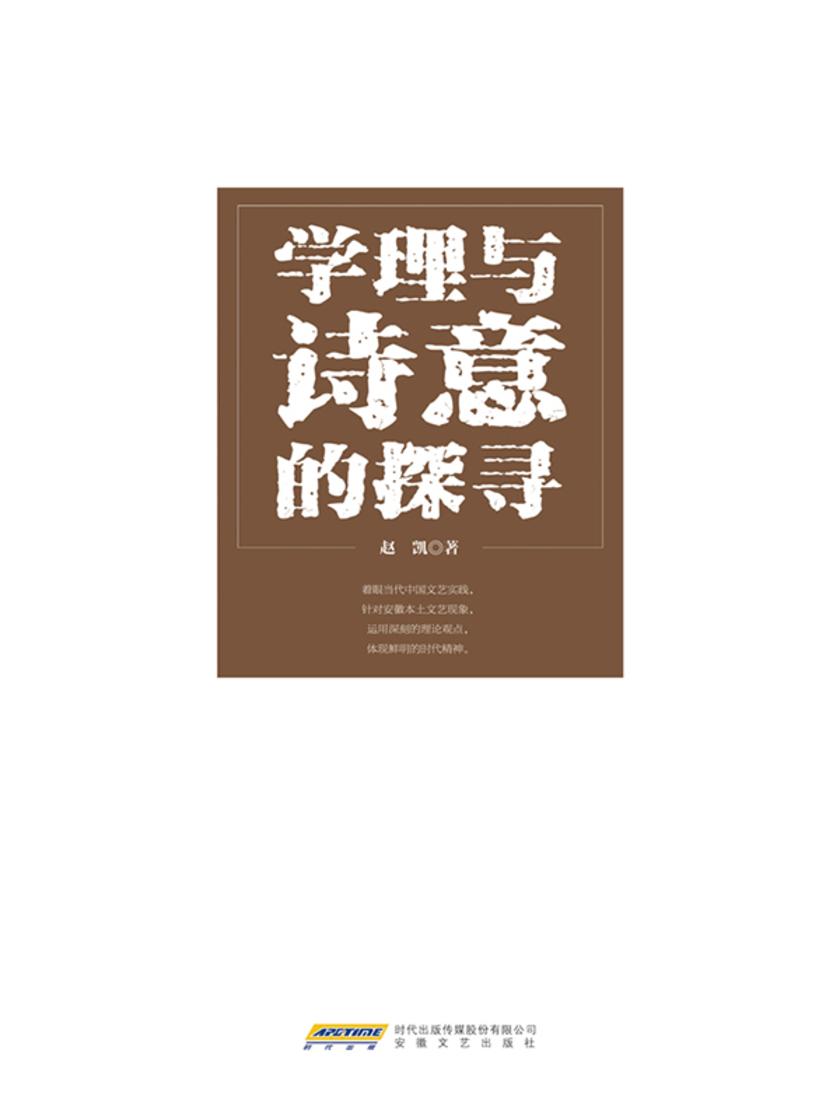
马克思主义中国化研究论丛:
学理与诗意的探寻
¥9.99
本书是一部文学评论专著,*而系统地收录了安徽大学教授、博导、评论家赵凯自2000年至今撰写并发表的文学评论文章45篇。赵凯系马克思主义文艺理论中国化理论研究的专家,这部评论集的文章主要针对安徽本土的文艺现象有感而发,正是作者着眼于当代中国的文艺实践,将马克思主义文艺理论运用到具体的文学研究和批评中的成果展现,体现出鲜明的时代精神与深刻的历史意味。收录的评论文章曾陆续发表于《人民日报》《光明日报》《文学评论》《文艺报》《文艺研究》《文学理论与批评》《安徽日报》《安徽文学》等报刊,已产生了良好的社会反响。


善的历程——儒家价值体系研究(当代中国人文大系)
¥34.80
与前此的文化史和思想史研究相近,《当代中国人文大系·善的历程:儒家价值体系研究》所作的,首先是一种历史的诠释。当然,诠释不同于历史的简单再现,它总是以诠释者的理论视域为背景,并同时展为一个逻辑重建的过程。事实上,历史的诠释与逻辑的重建往往很难分离,二者从一个侧面展示了历史与逻辑的统一。也正是以此为基本原则,本书对儒家价值体系的考察,并不仅仅限于文化史现象的描述,而是更多地侧重于其历史内涵与逻辑意蕴的双重展示,后者同时又旨在为文化哲学的当代建构提供某种历史的前提。

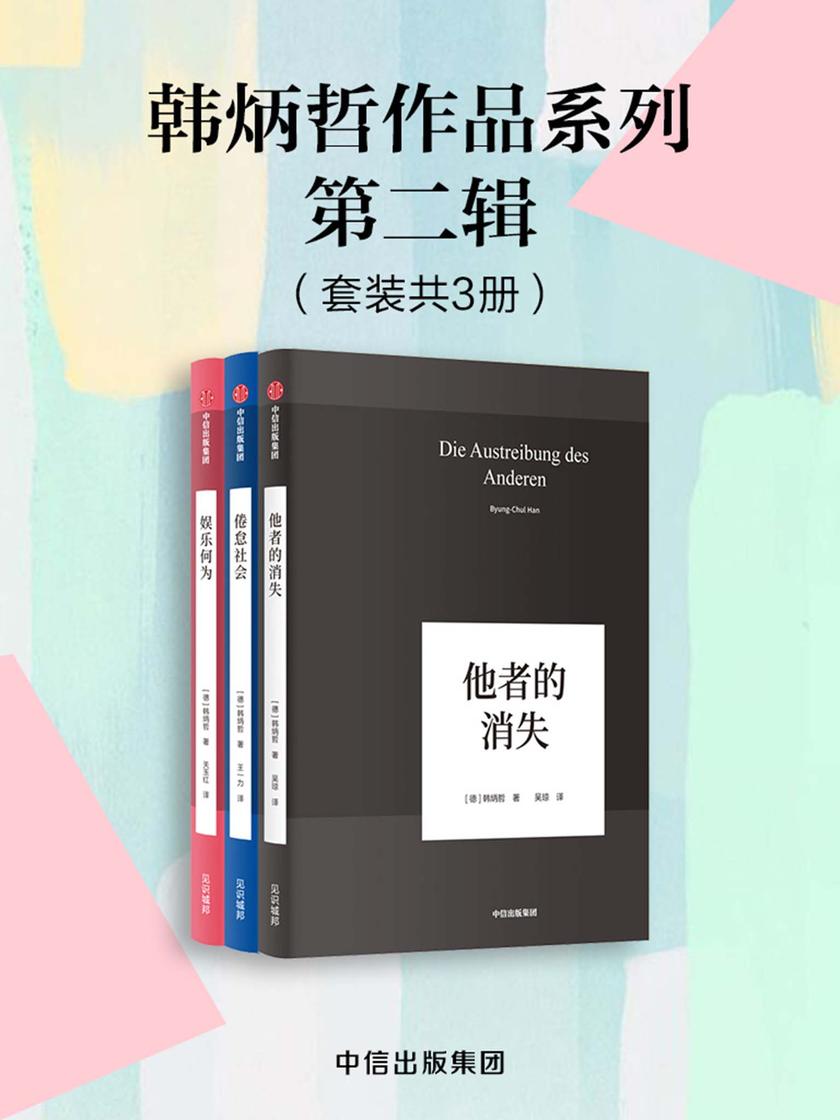
韩炳哲作品系列·第二辑(套装全3册)
¥64.80
《他者的消失》(书号:978-7-5217-0470-9;定价:35.00元) 他者的时代已然逝去。 那朋友似的、地狱般的、神秘的、诱惑的、爱欲的他者已让位于同者。如今,同质化的扩散形成病理变化,对社会体造成侵害。扩散之势愈演愈烈。使社会体害病的不是异化、退隐、禁令和压制,而是过度交际、过度信息、过度生产和过度消费。 如今的时代标志不是由他者带来的压迫,而是由同者造成的抑郁。当今社会中有诸多具标志性的现象,譬如恐惧、全球化、恐怖主义等,韩炳哲的新作所探究的正是这些现象背后潜藏的同质化的暴力。 韩炳哲用他的作品开辟了一条横穿当代文学之林的甬道。他不求你我点赞,只求警醒世人。 ——德国广播电台(Deutschlandfunk) 《倦怠社会》(书号:978-7-5217-0469-3;定价:35.00元) 否定性的社会已经消失,取而代之的是充溢着积极性的社会。 从这一范式转移出发,韩炳哲展示了当今社会的病理形态,其中包括抑郁症、注意力缺乏症、过劳症等精神疾病。它们不是传染病,而是梗阻症;不是由否定性的、免疫学上的他者导致,而是源于过量的肯定性。 因此,一切免疫学式预防和抵抗措施都失效了。作者的论述*终以一个社会愿景结束,他有意赋予其一个含有歧义的名称“倦怠社会”。其中,生命变成了生存,生存导向对健康的狂热崇拜,健康带来了疾病和僵死。 失去了死亡的否定性,生命自身僵化成为死亡。 一部为当下全球化时代做出诊断的重要作品。 《娱乐何为》(书号:978-7-5217-0481-5;定价:38.00元) 现在,娱乐的无处不在预示着全新的事物即将来临。人们对世界和现实的理解开始发生根本性的变化。 今天,娱乐升级成为一种新式范例,即一种新的决定什么具有处世能力、什么没有,也就是决定什么是存在者的存在模式。因此,现实本身呈现出一种特殊的娱乐效果。 娱乐的绝 对化导致世界变成享乐的世界,受难精神将这样的世界解释和贬低为沉沦、虚无,甚至是非在。然而,受难和娱乐其实并不完全相异。娱乐的纯粹无意义与受难的纯粹意义是紧密相邻的。 小丑的微笑与痛苦之人痛苦扭曲的表情看起来惊人地相似。 韩炳哲创造了一种他个人独有的思想传统。 ——《周日世界报》(Welt am Sonntag)

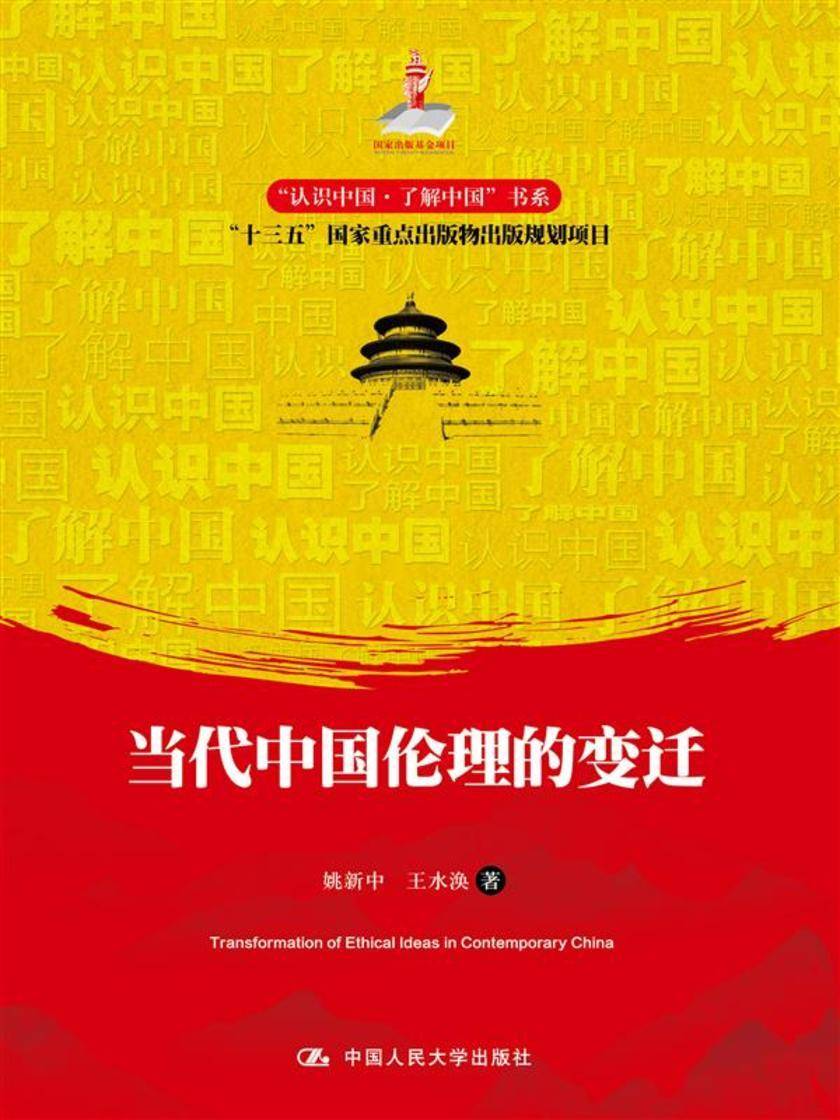
当代中国伦理的变迁(“认识中国·了解中国”书系)
¥34.80
本书主要讲述了中国人的日常伦理,以及在社会发展程中,这些伦理发生了什么样的变化。诸如,核心小家庭替代了大家族,城镇化的推更新了以往的乡村伦理。在书中,我们可以读到中国伦理的变化,感受到中国人的伦理随着社会的发展,已经有了新的面貌和样式。


哲学的殿堂——哲学元理与思维变革
¥51.60
“哲学本身就是一座宏伟壮丽的殿堂,在这座殿堂里有很多恒久而常新的话题,与时代深沉的思绪相应和,给人以精神的启迪。”十五位哲学名家(张立文、刘大椿、段忠桥、刘晓力、龚群、郭湛、张志伟、李秋零、焦国成、宋志明、冯俊、李德顺、庞元正、周桂钿、廖申白)在《哲学的殿堂:哲学元理与思维变革》中深浅出地讲解了复杂而深刻的哲学问题,勾勒了哲学学科发展脉络,带领读者一起领略“哲学的殿堂”引人胜之处。本书既显示了他们深厚的学术功底,又反映了他们对时代问题的深切关怀;既有对哲学某一学科、某一问题的整体审视,又有对哲学巨擘思想的细致把握;既有对过往思想的深刻反思,又有对时代前沿问题的敏锐思索。哲学名家们讲述问题细致,如数家珍,旁征博引,所涉内容广泛,沟通中西,贯穿古今,展现了哲学的独特魅力与时代价值,读者可以从中获得启迪。


葛晨虹文集
¥298.80
文集精选了葛晨虹教授生前发表的重要著作和文章,以及具有代表性的课题、讲座和课程讲稿,以纪念葛晨虹教授对于中国伦理学理论和事业发展的重要贡献。卷《德化的视野》,系统梳理了葛晨虹教授研究中国传统伦理、古代德性思想、中西方伦理文化差异比较、传统文化的现代传承与发展等方面的主要成果。 第二卷《伦理学基本理论研究》,主要收集葛晨虹教授对于伦理学基本理论的研究成果;第三卷《中国礼仪文化》,集中论述作者对中国礼仪文化和文明礼仪问题的研究;第四卷《公民道德建设》,致力于公民道德建设的理论研究与实践转化,研究公民道德建设中的诚信规范,以及如何提升人际交往能力与现代人才素质、如何启公民教育的新风气与提升公民意识等理论问题;第五卷《现实道德问题研究》,关注社会重大现实问题,注重理论和社会实践的结合,包含了对于现实道德问题研究的丰厚成果。

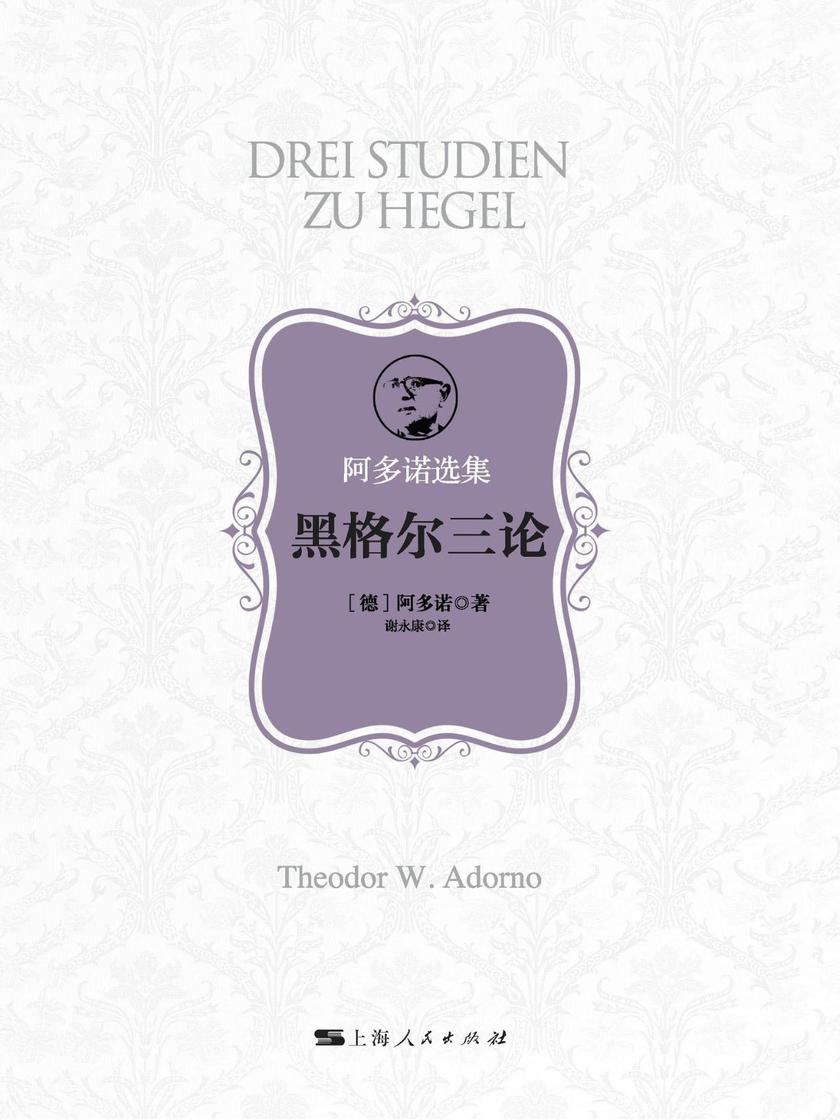
黑格尔三论
¥25.00
本书是阿多诺唯*专门探讨黑格尔的著作,包含了三篇各自独立又相互补充的论文。在本书中,阿多诺提出了让人耳目一新的黑格尔理论形象,如思辨唯心主义的极致就是唯物主义,黑格尔对事物的尊重和敬畏前*未有,黑格尔哲学实质上是非体系的等等。在《黑格尔哲学诸方面》一文中,阿多诺试图解读出黑格尔哲学的“整体”;《经验内涵》可以被视为对海德格尔解读黑格尔的回应;而《晦涩,或者该如何阅读黑格尔》一文则是对黑格尔哲学的文学性解读,这个角度在黑格尔研究中并不多见。在阿多诺看来,黑格尔哲学是“真”与“不真”的复合体,正如其作为意识形态是必然的虚假意识,而这些都通过社会性劳动及其构成的社会总体获得了解释。

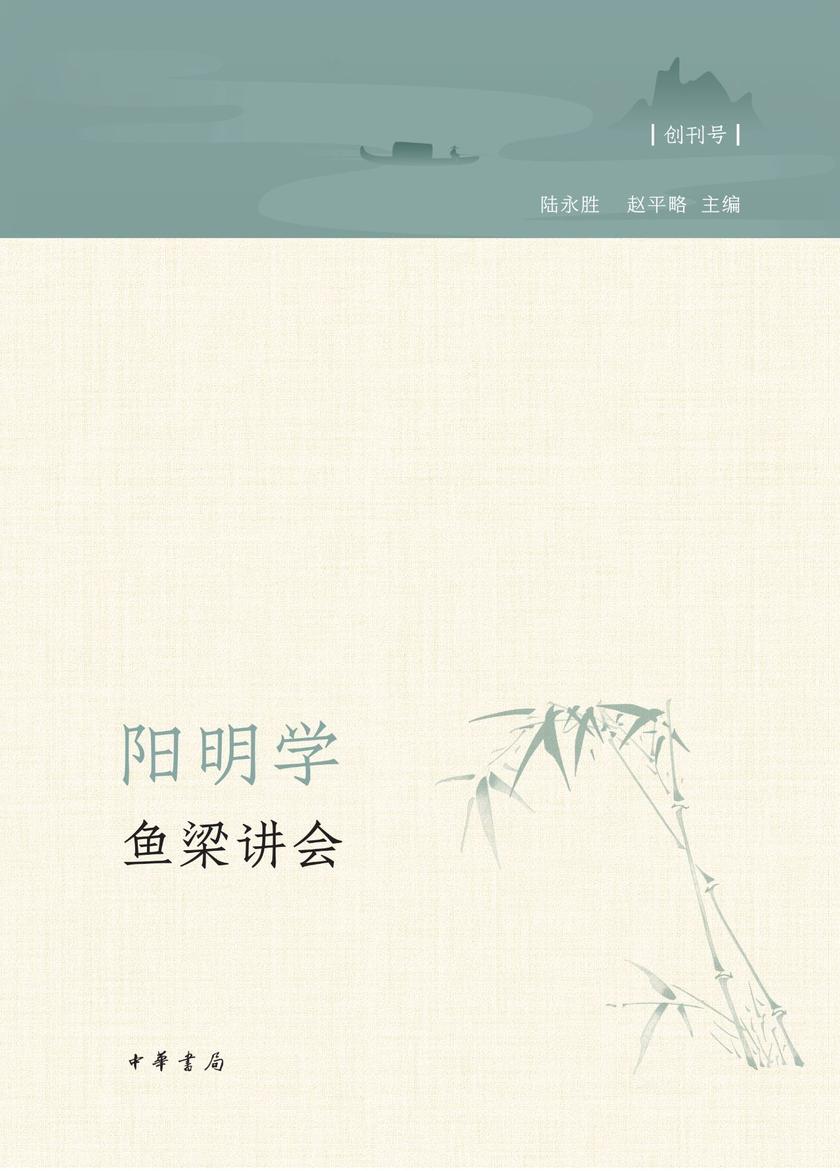
阳明学·鱼梁讲会(创刊号) 中华书局出品
¥27.72
本刊是贵阳学院阳明学与黔学研究院主办的阳明文化讲会集刊。“鱼梁讲会”是研究院的学术文化交流品牌,因贵阳学院在鱼梁河畔而得名,旨在继承和弘扬中华优秀传统文化,侧重阳明文化的研究、普及与传播,促阳明学的当代价值研究,推传统文化(阳明学)与时代主流文化的融合研究和思考。创刊号共二十讲,由国内外阳明学或传统文化领域知名学者的讲稿整理而成。

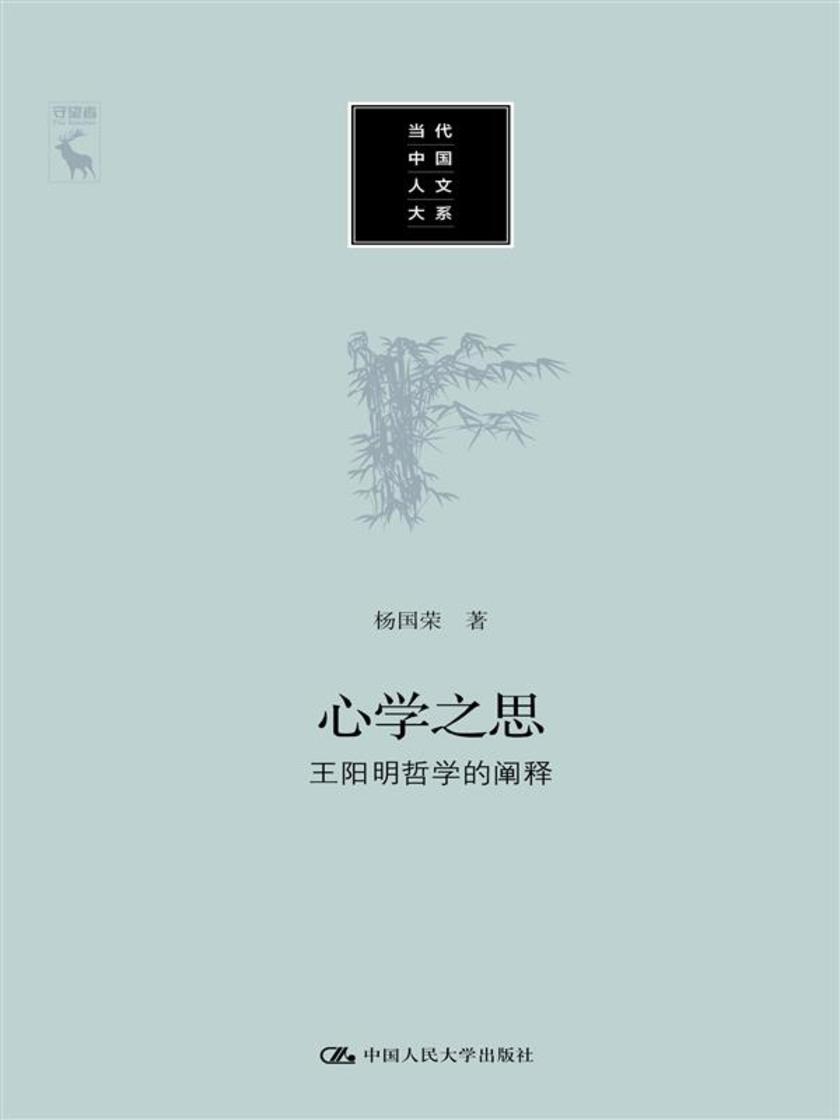
心学之思——王阳明哲学的阐释(当代中国人文大系)
¥46.80
有关王阳明研究的一部佳作。作者从一个新的视野出发,对阳明心学展开多维度的阐释,思路开阔,创见颇多,具有开拓性。尤其从“存在”的维度上阐明阳明心学的个体性特征,进而提出“存在意义”的转换问题,明确肯定阳明心学将情感、意志视为主体应有的规定,这都是同类著作中少见的。又如从阳明学关于“心体”、“本体”与“工夫”等方面所表现的二重性引出其演变分化的历史叙述,得出阳明形而上学的消解过程完成于黄宗羲的结论,亦有前人所未言者。此书1997年由三联书店出版,早已脱销,它的再版必将推进阳明学研究的深入发展。


清代荀学史略(精) 中华书局出品
¥40.80
清代是荀学复活并逐渐走向兴盛的时代,清代的荀学研究也是荀学*为重要的一个环节。本书将清代荀学划分为清初、清中叶和晚清三个各具特色的时期,考察各时期荀学研究的特及时代背景、学术风气对该时期荀学研究的影响。在每个分期下,又对具有典型意义的问题作专题研究,以清楚展现其始末;对惠栋、戴震、汪缙、章太炎及维新派诸成员等于荀子义理颇有发挥、独成一家的学者,亦作专门探讨,以便睹其荀学思想之全貌。

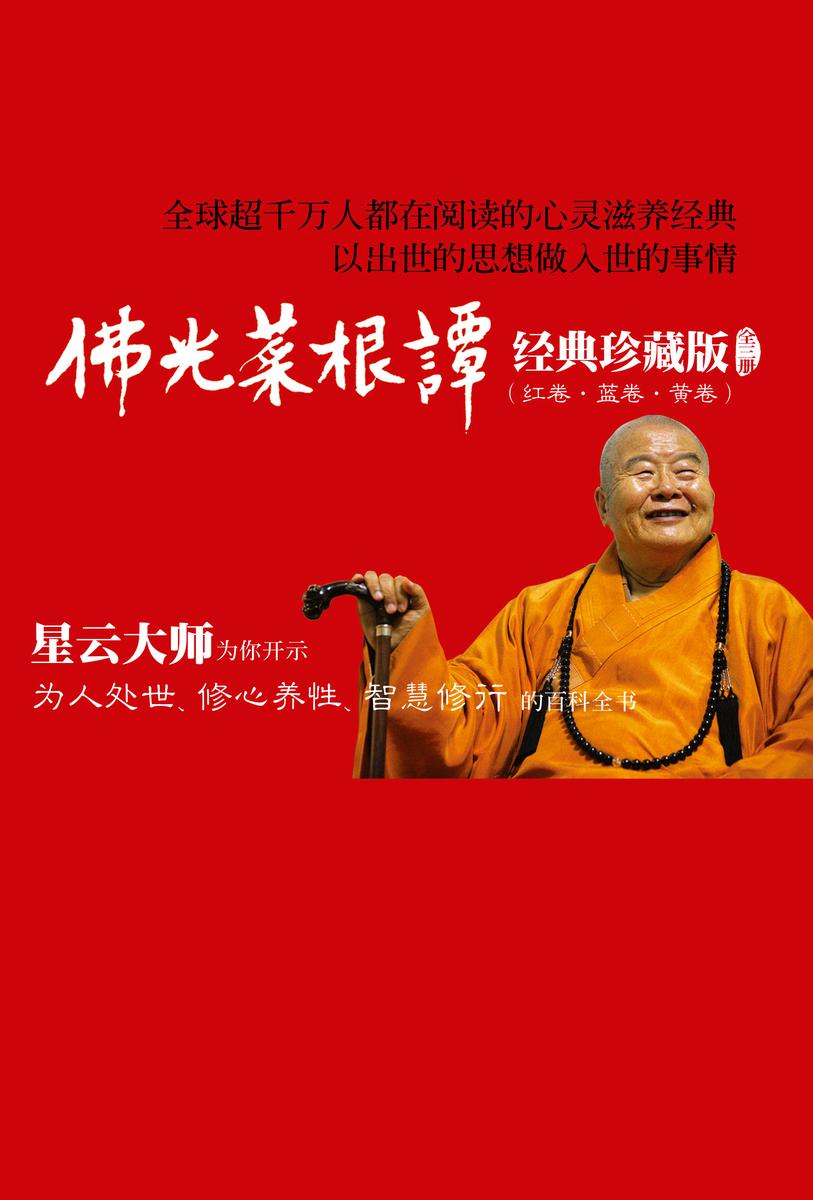
佛光菜根谭(精套装)
¥53.99
本书是星云大师从自己几十年的著作和开示记录中,提炼经典汇编而成的一部语录体心灵励志图书。 全书一套三册,集中记述了星云大师对世界、社会、生命等的证悟智慧,以及怎样立德做人、修身养性的智慧,以及如何才能在烦恼生命中寻求到平静而开阔的心灵境界的智慧。言简意赅,精妙处往往让人醍醐灌顶。若能每日一偈,则日日都有新智慧,日日都能有好心情。

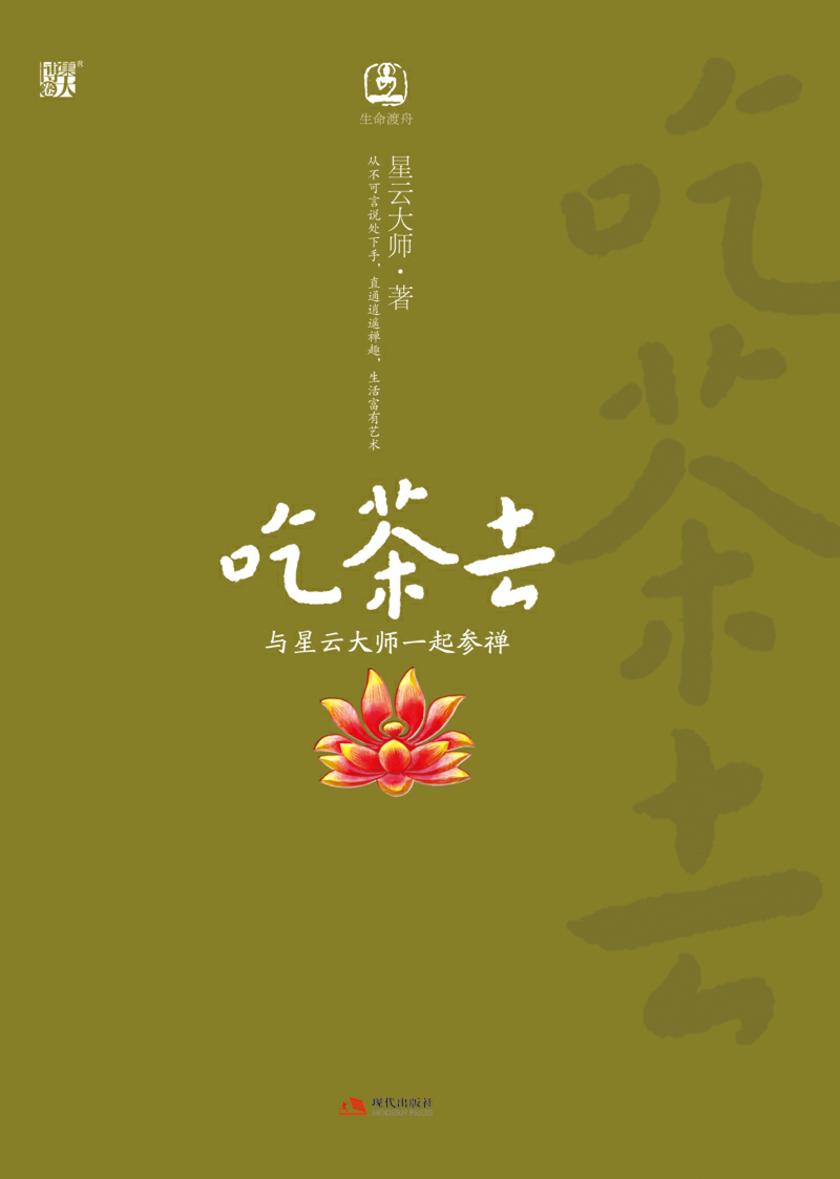
吃茶去:与星云大师一起参禅
¥24.99
中国人千百年来流行说禅机。星云大师精选禅宗公案200则,从现代人的观点,帮助您汲取禅师灵活幽默的智慧,活出充实自在的人生。禅,离开不了生活,穿衣吃饭是禅,搬柴运水也是禅——一天,稽山章禅师在庭院里碰到投子禅师,投子禅师以一杯茶慰劳他,问道:“这杯茶如何?”章禅师双手接过茶,说道:“这杯茶,可以说森罗万象都在这里!” 投子禅师道:“森罗万象都在这里,如此说来,这是一杯非比寻常的茶,假著随随便便喝下去,谁知有何严重的后果?” 稽山章禅师有恃于自己对禅的心得,在禅师尚未说完话时就突然把茶泼掉,机锋严厉地道:“森罗万象在什么地方?” 投子禅师这时轻言慢语非常平静地说道:“可惜!一杯茶。” 章禅师转变话锋道“这只是一杯茶。”。投子禅师不放过章禅师:“虽只是一杯茶,森罗万象都在这里!” 章禅师终于无话可说。

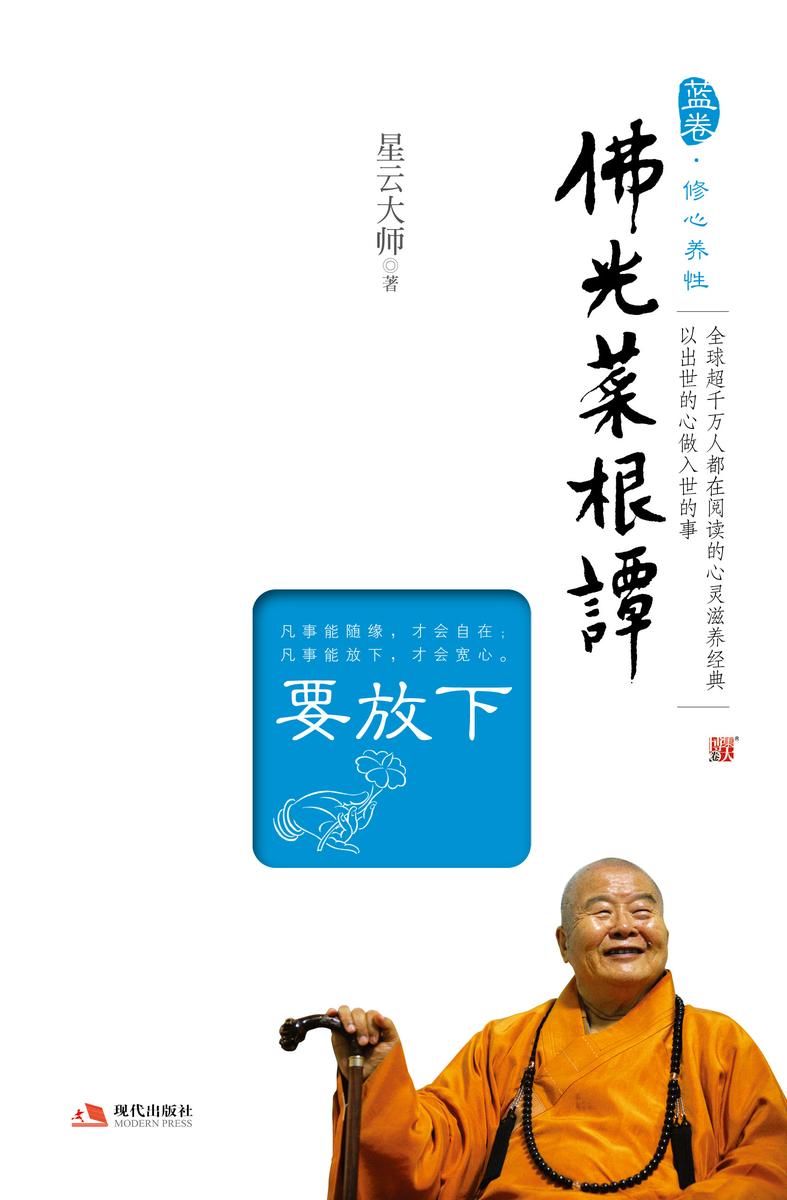
佛光菜根谭(要放下)
¥24.99
本书是星云大师从自己几十年的著作和开示记录中,提炼经典汇编而成的一部语录体心灵励志图书。 全书一套三册,集中记述了星云大师对世界、社会、生命等的证悟智慧,以及怎样立德做人、修身养性的智慧,以及如何才能在烦恼生命中寻求到平静而开阔的心灵境界的智慧。言简意赅,精妙处往往让人醍醐灌顶。若能每日一偈,则日日都有新智慧,日日都能有好心情。

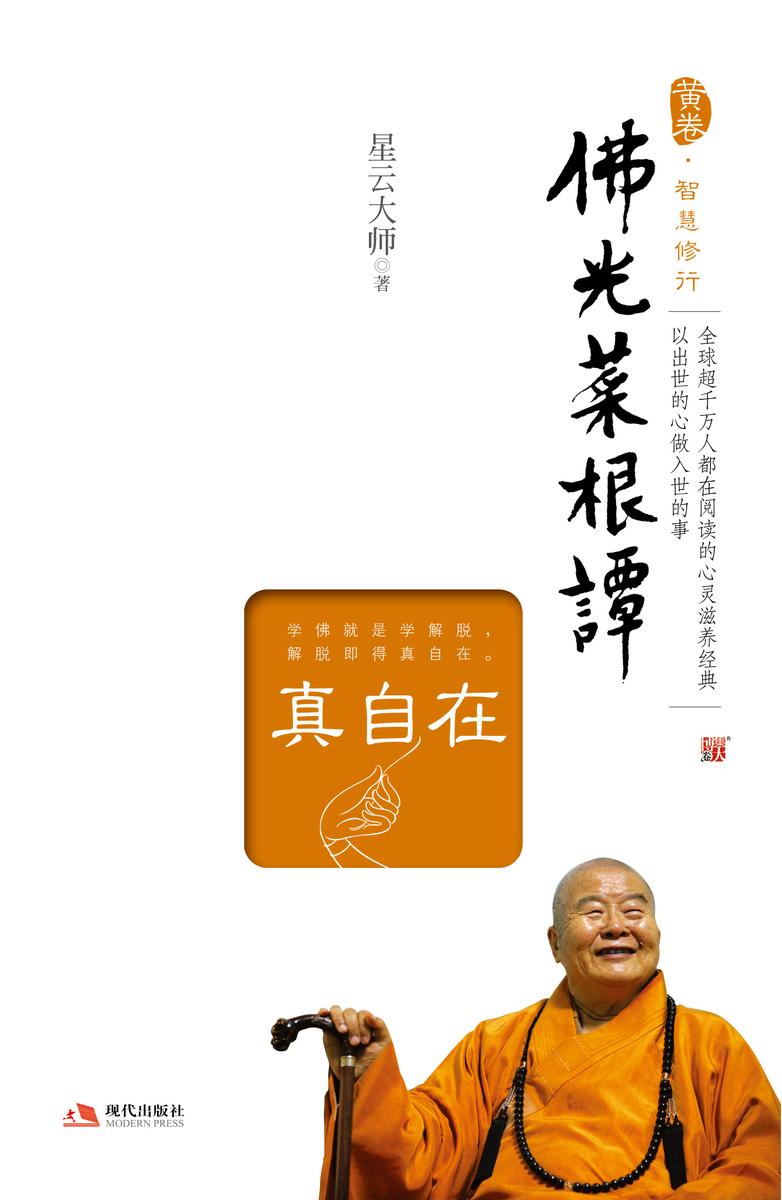
佛光菜根谭(真自在)
¥24.99
本书是星云大师从自己几十年的著作和开示记录中,提炼经典汇编而成的一部语录体心灵励志图书。 全书一套三册,集中记述了星云大师对世界、社会、生命等的证悟智慧,以及怎样立德做人、修身养性的智慧,以及如何才能在烦恼生命中寻求到平静而开阔的心灵境界的智慧。言简意赅,精妙处往往让人醍醐灌顶。若能每日一偈,则日日都有新智慧,日日都能有好心情。

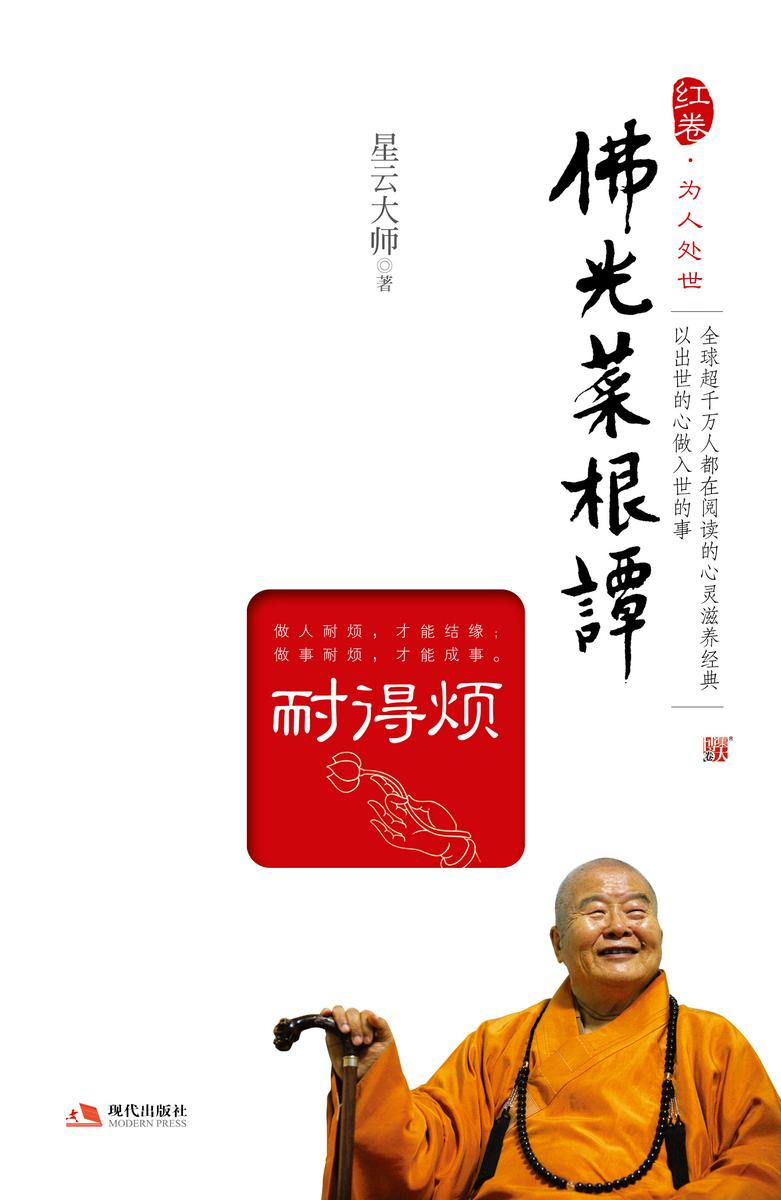
佛光菜根谭(耐得烦)
¥24.99
本书是星云大师从自己几十年的著作和开示记录中,提炼经典汇编而成的一部语录体心灵励志图书。 全书一套三册,集中记述了星云大师对世界、社会、生命等的证悟智慧,以及怎样立德做人、修身养性的智慧,以及如何才能在烦恼生命中寻求到平静而开阔的心灵境界的智慧。言简意赅,精妙处往往让人醍醐灌顶。若能每日一偈,则日日都有新智慧,日日都能有好心情。

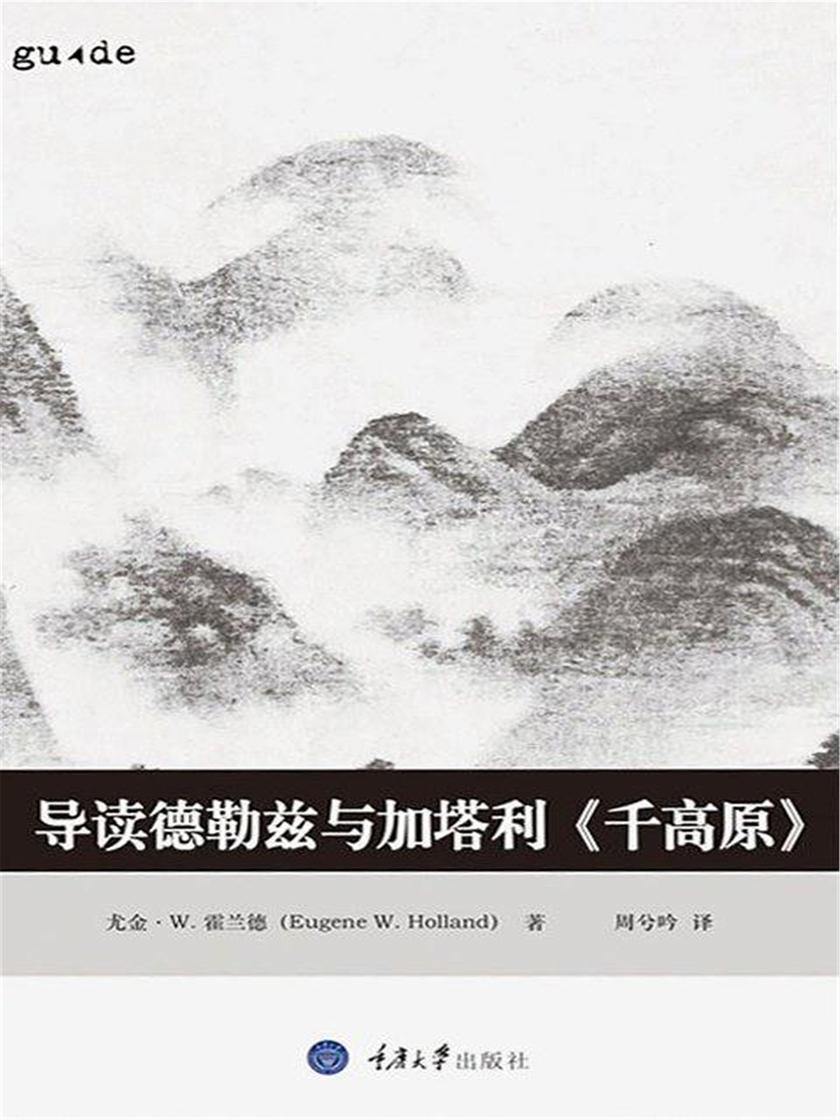
导读德勒兹与加塔利《千高原》
¥21.76
《千高原》是一部非凡之作。按德勒兹与加塔利的话说,它是如根茎般写就的。《千高原》中的十五座高原所提出的“问题”可以分解成五类: (1) 认识论问题 思想该如何运作才能与宇宙共思,而不是去思考宇宙,因而就能加速我们栖居之所的相对解域,有时足够幸运的话,甚至达到*解域的无限速率,或者“纯粹的内在性”?“根茎”高原、“ 平滑与纹理”高原直地处理这一“问题”,“游牧学”高原的一些部分处理皇家科学与游牧科学以及公理体系和问题体系之间的差异。其目的是要发展出一种*通过生成来把握存在,通过潜在来把握现实的思想图像。 (2) 本体论问题 宇宙以及其中的生命如何能够以这样一种方式存在:它们既是变化的结果,同时又总是对未来的变化敞怀抱。 我们怎样才能依据生成来理解存在,依据差异而不是同一,来将存在理解为放系统的一个动态的功能?重要的是,如此这般地理解世界到底有什么好处?它怎样给我们的社会变化带来更好的前景?直而又全方位地处理这个“问题”的是“道德地质学”高原与“迭奏”高原——前者主要处理无机层的问题,而后者则主要处理异质成形层的问题。 (3) 人类学问题 第三类问题可以被称作人类学问题,但仅仅在结构主义(反人文主义)的意义上关涉“ 象征秩序”:人类的生命形式是怎样以象征的方式占据异质成形层的;人类的社会自我组织是如何通过符号来实现并在符号中获得反映——怎样通过语言、货币与图像来实现的? 在此,相关的高原是“ 语言学公设”、“符号的机制”、“颜貌”和“捕获装置”高原。 (4) 伦理问题 人类个体要如何自我组织,才能与他人一道尽可能地实现既有成效又愉悦的去层化? 这里切题的显然是“怎样使自己成为无器官的身体?”高原; 但“一匹狼还是一些狼”、“三则短篇小说”和“生成”高原也同样处理伦理“问题”。 政治问题 我们要如何把人类生命形态理解为社会性的自我组织,才能使它既能解释畜群行为又能解释集群(猎群)行为,既能解释压抑的专制暴政又能解释外向扩张的经济帝国主义,既能解释严苛层化的约束又能解释去层化的逃逸?“游牧学”、“微观政治与节段性”高原为直地处理这个“问题”,当然其他许多高原也会处理这个“ 问题”,只是不那么显而易见罢了。

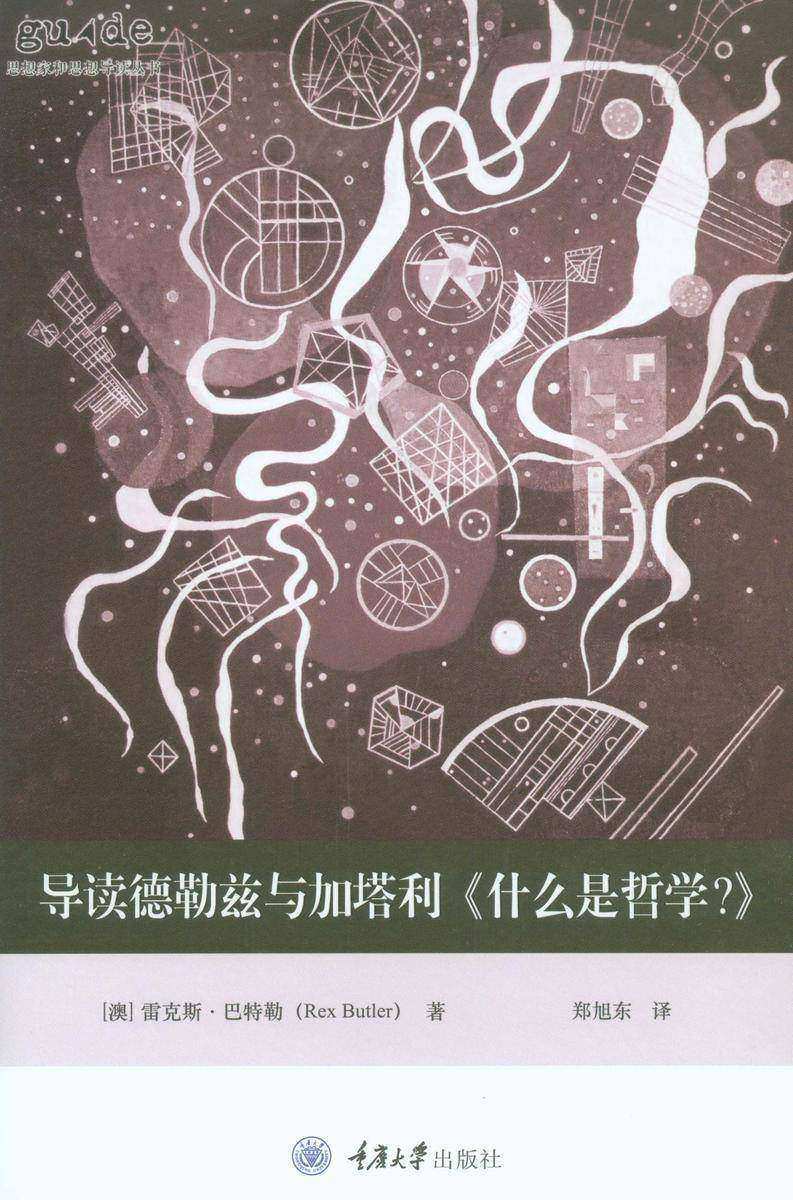
导读德勒兹与加塔利《什么是哲学》
¥29.40
《什么是哲学?》的秘密就在于,这本书和它的主题、它的发生、它的评论都同时呈现在一个交互且不可分割的生成之中。这也就意味着它们每一个都不先于另一个,也都不能给出决定性的言说。正是出于这个理由,《什么是哲学?》这本书将永远向未来放,德勒兹与加塔利将之定义为“一个从不终止,总是在产生之过程中的新世界”。

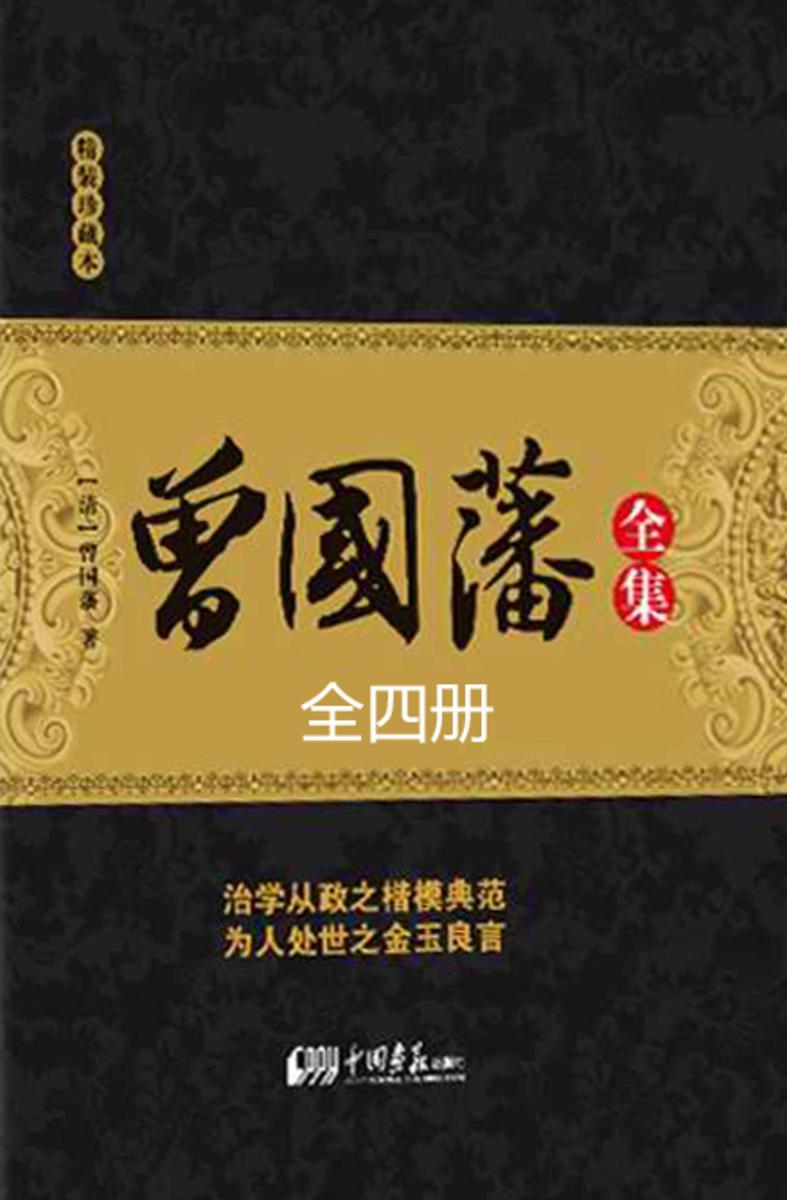
曾国藩全集(家书上下册+年谱+奏折)(精装珍藏本)(套装共4册)
¥48.88
曾国藩第六代嫡孙曾樾、曾国藩研究会主任刘建海盛赞推崇,曾国藩祭祀大典指定用书。荣获新闻出版署优秀读物称号,修身、处世.齐治国经典。

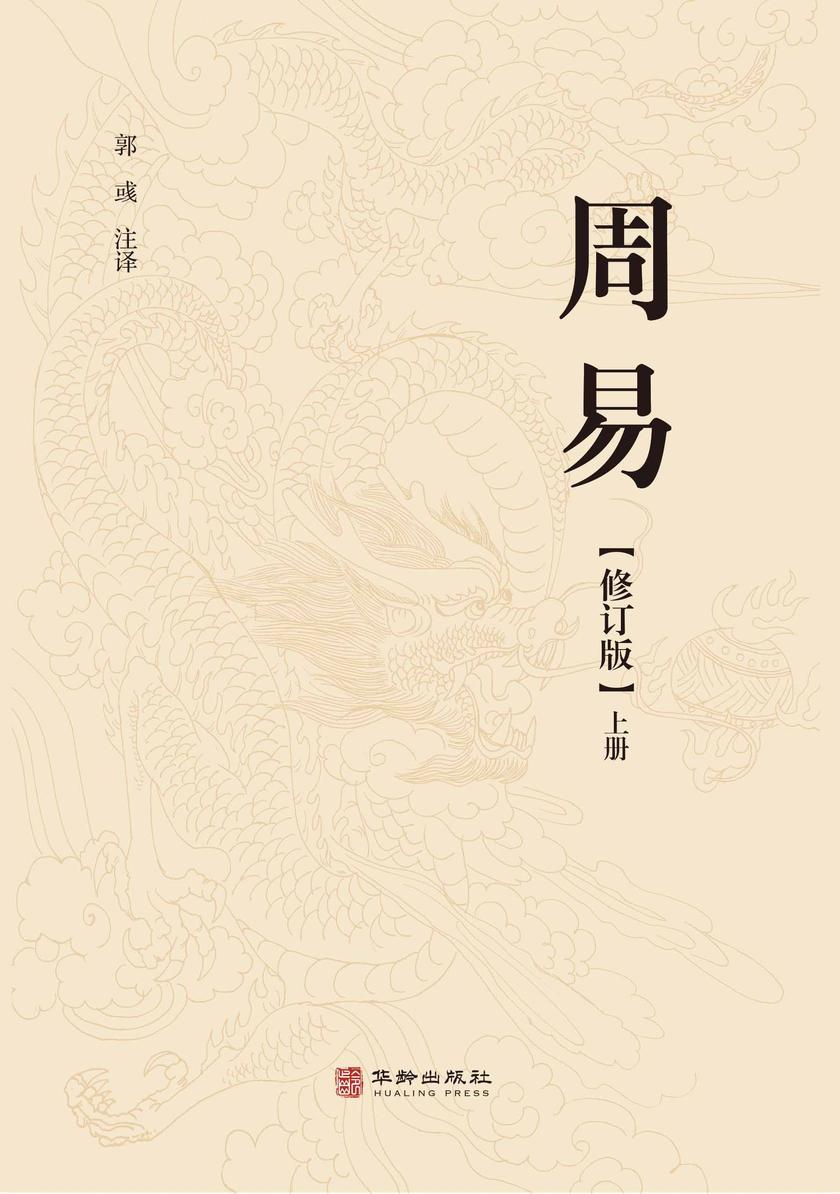
周易(修订版)(上)
¥23.00
周易(修订版)(上)




 购物车
购物车 个人中心
个人中心



